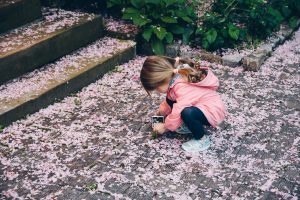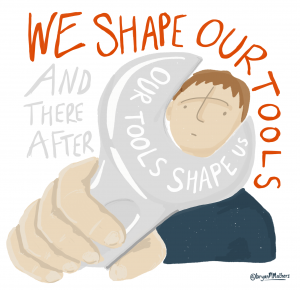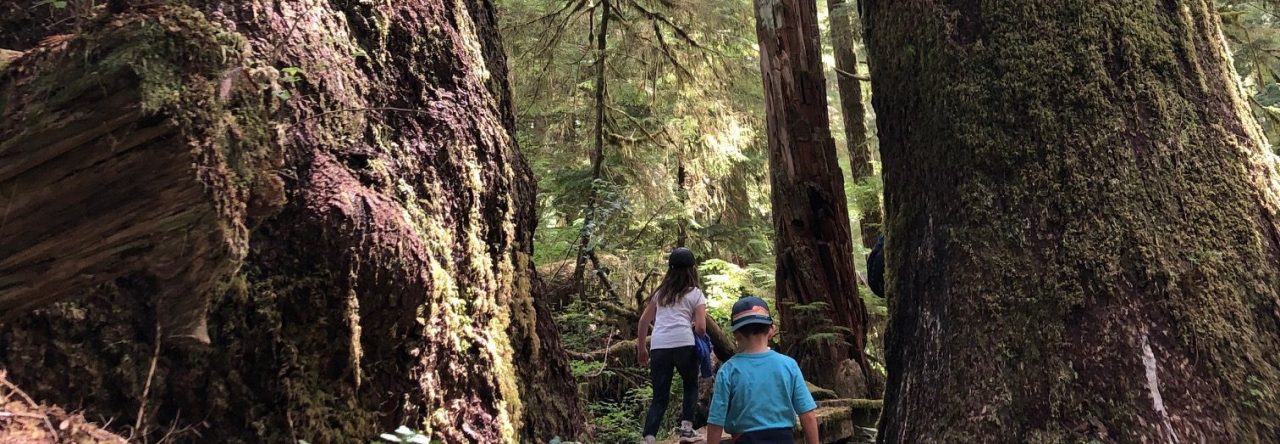
Photo by Kelly Sikkema on Unsplash
Jesse Miller, otherwise known as Mediated Reality, stopped by our class to chat about social media and professional responsibilities online.
Back in 2014, Jesse spoke on TedX about how we connect and engage with technology. To find out what Jesse is thinking today, visit his Twitter account @MediatedReality.
Jesse brought up the notion of 2020 as the time to focus on networked citizenship.
What does networked citizenship encompass?
⇒ digital identity
⇒ digital rights
⇒ digital literacy
⇒ use of communication networks (social, professional, personal)
⇒ safety (networked connections)
⇒ security of self
“We shape our tools and thereafter they shape us.” ~John M. Culkin, Saturday Review, 1967
Check out more about “The Man Who Invented Media Literacy” here.

Our tools shape us by @bryanMMathers is licenced under CC-BY-ND
There are three audiences for educators:
- Public: Understand what the standards are we are held to as educators.
- Staff: Do we all need to be friends? Consider who is on your social media networks and what you post there will affect your reputation as an educator.
- Students: Know how your school plans to use social media, what is acceptable at school and understand how school wishes to use social media to educate students.
Know how schools and the school district work in handles communications – via text, email, etc. Understand the policies of school you’re employed by, ie. policy around classroom use of cellphones. Teaching kids about consequences of their online actions.
Some references for future use:
mediasmarts.ca
Canada’s centre for digital and media literacy. A great resource with Canadian themes and lesson plans for a variety of grades and digital/media topics.
Dr. Amy Orben
Amy’s research uses large-scale data to examine how digital technologies affect adolescent psychological well-being and mental health. She uses innovative and rigorous statistical methodology to shed new light on pressing questions debated in policy, parenting and mental health. She also campaigns for better communication of trends in data and the wider adoption of Open Science.

Leave a Reply